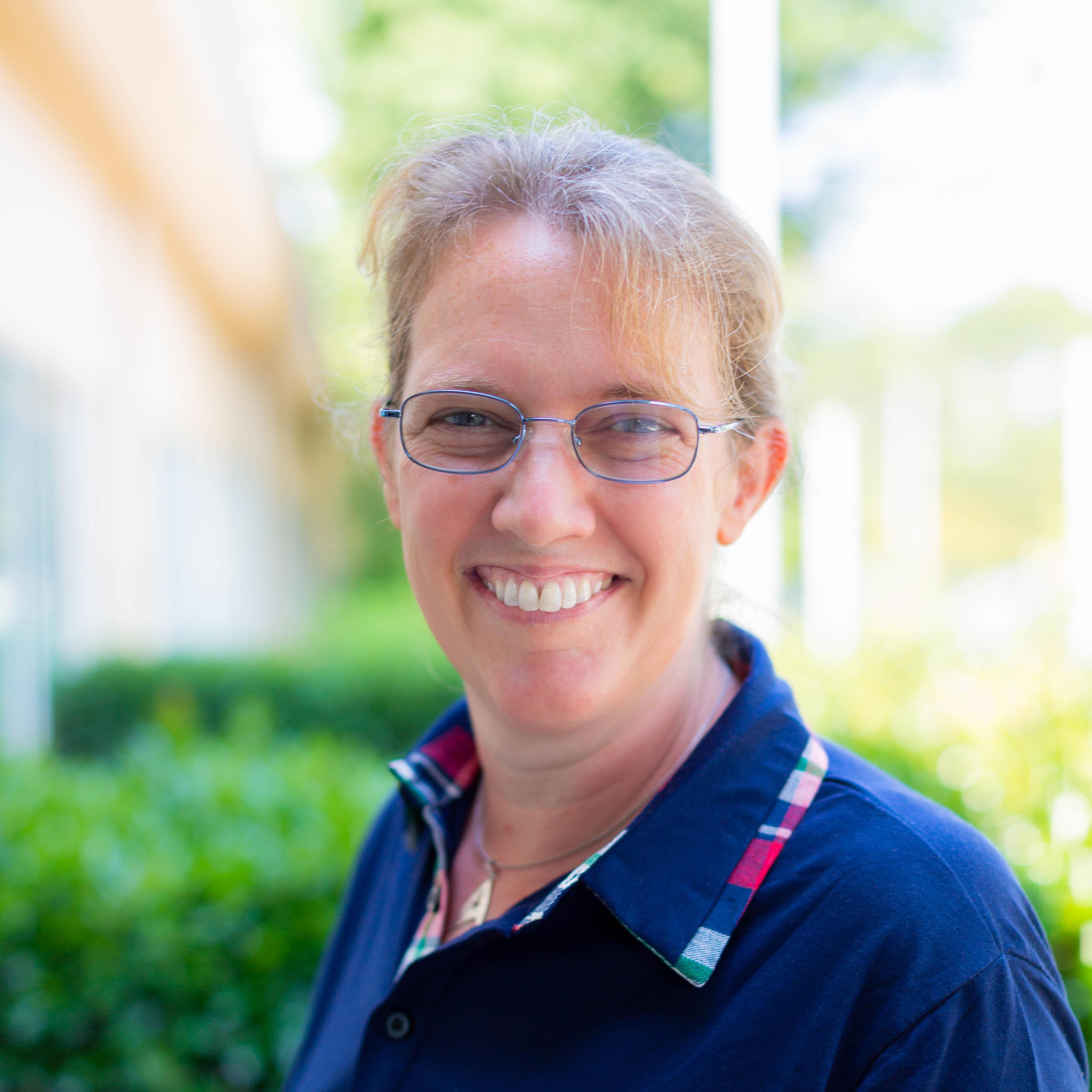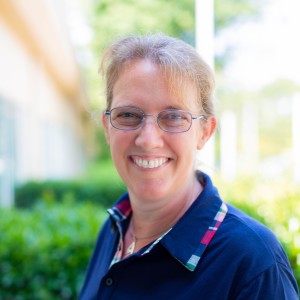
Beth Hawks has taught science for 25 years. She now serves as the science department chair at Grace Christian School in Raleigh, North Carolina. A graduate of Orla Roberts University, Beth has taught 8th grade Physical Science, Physics, Chemistry, Algebra IB, among other courses. She frequently provides professional development to colleagues in her role as resident brain enthusiast.
When I started teaching at my current school twenty-one years ago, one of the “areas for improvement” on my year-end evaluation was that I didn’t seek out professional development. I couldn’t disagree. Back then, it never occurred to me to seek it out. Both schools I had previously taught in said, “It is professional development day. Go over there and learn.”
While I read about teaching, I did not attend very many workshops or conferences that took place on school days. I hated being out of my classroom, and every teacher knows what a pain it is to develop sub plans.
That all changed when a brochure showed up in my mailbox for the 2018 Learning and the Brain conference.
Teachers get a lot of brochures advertising workshops and conferences from a variety of sources, and we ignore most of them. I was on my way to the recycling bin with this one when a keynote speaker whose book I had just read caught my attention, so I opened the brochure. As I looked at the names and credentials of speakers and the topics of sessions, I was impressed.
By the end of that morning’s door duty, I was prepared to beg. I said to my administrator, “You know how I never want to go to anything? I’ve never wanted to go to anything more than this!” They approved my request provided that I would teach my academic team what I had learned upon my return.
Deal.
What I found when I got to Boston was not just one great speaker, but an incredible collection of researchers, scientists, and educators with deep knowledge. More importantly, they were down to earth and transparent, willing to answer questions and talk and follow up with me after the conference because they cared about improving my practice, not just getting a speaking gig. I couldn’t get enough of being taught by these experts.
When I returned home, I was given time in a faculty meeting to present about what I had learned. I had so much to present, I asked if I could have two. It was lovely knowing that what I had learned would benefit classrooms other than my own.
In 2019, I attended the Boston conference again. While the first year had been great, this was the year that I absolutely fell in love with the science of learning. From the keynote presentations of Barbara Oakley, David Daniel, David Rose, and Sarah Jayne Blakemore to the sessions of John Almarode and Marcia Tate, I came home with both theory and practical advice that changed my classroom practice dramatically.
- I thought about encoding and engagement in new ways.
- I made a clumsy attempt at interleaving.
- I instituted more pre-questions and retrieval than ever before.
Trying new methods was energizing because I was doing it with more sense of purpose and intention, knowing it was based on evidence.
I emailed my principal from the airport and told her how much I had learned and that I was pretty sure I could develop a six session course for my colleagues. She got it approved by our accrediting organization for CEU credit, and by January, nineteen of my fellow teachers were getting the benefit of my Learning and the Brain experience. We had a great time learning together and brainstorming new ideas for our classes, which ranged from transitional kindergarten to AP Calculus.
When we were all thrown into virtual instruction just two months later, it was reassuring to have a basis for decision making about what mattered regardless of location.
- Encoding looked different than it had in my classroom, but I could still adapt what I had learned about encoding to this new context.
- Retrieval would be done through an online chat rather than mini-whiteboards, but I could be confident about the fact that it was still important.
Those who had taken the course expressed the same feelings, and I was grateful that I had been able to provide them with that reassurance by being a conduit of the Learning and the Brain experience.
Because of this conference, I became a voracious consumer of cognitive science research. Last year, when the school allowed me to run the six week course again, I had trouble staying within my time limits because I had learned even more from books, blogs, and podcasts that I would not have sought out without the experience of Learning and the Brain. Now, I find myself making resource recommendations to the teachers around me several times a week.
This November, I had the awesome opportunity of bringing a friend with me to the conference. Watching him appreciate the experience deepened my love for it even more. I enjoyed introducing him to people I respect, and we both got to meet some of our academic heroes. Talking through what we had learned on our walks back to the hotel helped us both learn even more. While I appreciate that the virtual option exists for those whose budgets won’t allow travel, I greatly value the things that happen in person. The ability to talk directly to someone whose work I admire (e.g. Daniel Willingham) can’t be replicated digitally. I would recommend to anyone that they attend the conference in person if they can.
I am writing this during Thanksgiving week, so let me end with this. I am thankful for Learning and the Brain. If that brochure had not appeared in my box five years ago, I would not have grown in my teaching as much as I have or been able to help my colleagues grow in theirs. I am thankful so many educators get to learn and grow and communicate with each other, and I am grateful to call them friends.





